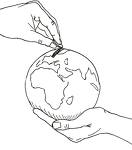 In a paper prepared for the 6th ELIAMEP Seminar entitled The Delphic Oracle on Europe: Politics and Policies Janis A. Emmanouilidis, Stavros Costopoulos Research Fellow at ELIAMEP, argues that today’s European Union (EU) suffers from a lack of strategic orientation and a loss of dynamism. After almost two decades of tiresome and frustrating attempts to reform its politico-institutional structures and after “big bang” enlargement from 15 to 27 member states the EU has entered a period of exhaustion. Yet, according to the paper, the Union cannot afford to take a time out, if it wants to avoid the risk of gradual political marginalization in a global environment characterized by (i) a relative decline of the US and the West, (ii) the pressing necessity to redesign the system of global governance according to the new realities of international relations, and (iii) by a new quality of interlinked transnational or global risks, which cannot be solved on a national or even continental level.
In a paper prepared for the 6th ELIAMEP Seminar entitled The Delphic Oracle on Europe: Politics and Policies Janis A. Emmanouilidis, Stavros Costopoulos Research Fellow at ELIAMEP, argues that today’s European Union (EU) suffers from a lack of strategic orientation and a loss of dynamism. After almost two decades of tiresome and frustrating attempts to reform its politico-institutional structures and after “big bang” enlargement from 15 to 27 member states the EU has entered a period of exhaustion. Yet, according to the paper, the Union cannot afford to take a time out, if it wants to avoid the risk of gradual political marginalization in a global environment characterized by (i) a relative decline of the US and the West, (ii) the pressing necessity to redesign the system of global governance according to the new realities of international relations, and (iii) by a new quality of interlinked transnational or global risks, which cannot be solved on a national or even continental level.
In the paper it is argued that in order to develop new dynamism and to defy the danger of political marginalization two things are required: First, the EU needs to provide a modernized narrative on the basis of the recognition that European integration is the most appropriate instrument to enable Europe to maximise its global impact according to its values, historical experience and interests. Second, the EU needs to link the Union’s novel future-oriented raison d’être with an ambitious yet realistic and concrete grand project that reflects the modernized narrative of a “global Europe”. In concrete terms, the EU should develop and implement a comprehensive, coherent, proactive, innovative, ambitious yet realistic globalisation project.
The Global Europe 2025 project should, according to the paper, lay down Europe’s response to the core challenges related to four major dimensions of globalisation: (i) the globalisation of the economy; (ii) the globalization of security; (iii) the globalization of the environment; and (iv) the globalization of society. In each one of these four fields the EU and its member states should define the core objectives, the priority project(s), detailed policy measures, a concrete time-table for the implementation of the agreed measures, and a communication strategy including a report equivalent to the Cecchini Report, which portrays the costs and benefits of the Global Europe 2025 project.
The paper is work in progress and was prepared for the 6th ELIAMEP European Seminar The Delphic Oracle on Europe: Politics and Policies, organized by ELIAMEP between 25-28 June 2009 in Delphi, Greece.
Download:
Global Europe 2025 (draft version)


